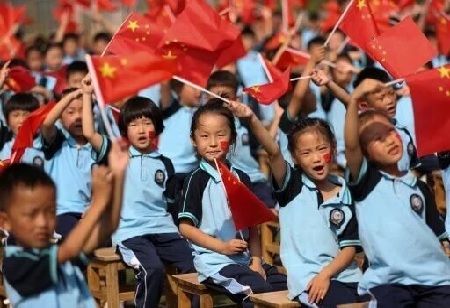- China will waive care and education fees for the final year of public kindergarten starting this autumn.
- Private kindergartens will offer equivalent fee reductions, with government subsidies covering the gap.
- The move aims to reduce parenting costs and strengthen early childhood education amid declining birth rates.
In a major step toward making preschool education more accessible, China will exempt children from paying care and education fees for their final year at public kindergartens, beginning with the upcoming autumn semester. The new policy, outlined in a guideline issued Tuesday by the General Office of the State Council, aims to reduce financial pressure on families while strengthening the nation’s early childhood education system.
The fee exemption will apply to children in the third year of preschool typically age six and will cover standard tuition fees approved by the government. However, it does not include additional expenses such as meals, boarding, or other miscellaneous charges. For children enrolled in private kindergartens, fees will be reduced by an amount equivalent to that of comparable local public kindergartens. If private institutions charge higher fees, they may continue to collect the difference from parents.
To ensure smooth implementation, the government has committed to subsidising both public and private kindergartens for the revenue shortfall resulting from the waiver. The subsidies will be allocated based on local kindergarten fee levels and the number of children who benefit from the policy. Local authorities have been instructed to ensure timely disbursement of funds to avoid disruptions in kindergarten operations or delays in teacher salaries.
The initiative is part of China’s broader effort to expand access to quality preschool education, which typically spans three years for children aged 3 to 6. According to the Ministry of Education, China had 253,300 kindergartens and 35.84 million enrolled students by the end of last year both numbers reflecting a noticeable drop from 2023, including a 5.09 million decline in student numbers and 21,100 fewer kindergartens.
The decrease coincides with a continued decline in the country’s birth rate. In 2024, China registered 9.54 million newborns, down sharply from the 17.86 million peak recorded in 2016. Experts say this demographic trend likely accelerated the decision to implement more robust preschool support policies.
Chen Zhiwen, a member of the Chinese Society of Educational Development Strategy, noted that the shrinking number of births and kindergarten enrollments may have prompted the government to move more swiftly. “Preschool education has been a weak link in China’s overall education system. This move aligns with long-term efforts to make early education more inclusive and affordable”, he said.
This year’s Government Work Report also emphasised a gradual expansion of free preschool education. The Law of Preschool Education, which came into effect on June 1, encourages regions with the capacity to begin rolling out free preschool education in stages.
Also Read: China Enrols Robot in Theatre PhD, Ignites AI-Art Debate
Wang Jian, director of the Institute of Education Finance Research at the China National Academy of Educational Sciences, noted that rising living costs are putting pressure on families particularly those with lower incomes. "Waiving preschool education fees will significantly ease the burden of child-rearing for many households", he said.
However, he also cautioned that full implementation will require substantial public investment. “Globally, most governments introduce free preschool gradually to avoid overloading the education system and public finances”, he added.
Xiong Bingqi, director of the 21st Century Education Research Institute, warned local governments against shifting funds from other essential areas, such as teacher wages and infrastructure, to cover the fee waivers.
As China continues its path toward universal access to quality preschool education, experts agree that careful planning, transparent funding, and phased implementation will be critical to the long-term success of this landmark policy.

